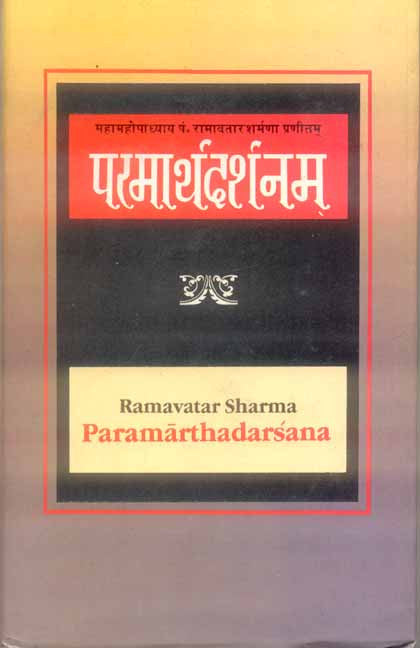Parmarthadarsanam-Ramavatar Sharma: Introduction by G.C.Pandey
Parmarthadarsanam-Ramavatar Sharma: Introduction by G.C.Pandey is backordered and will ship as soon as it is back in stock.
ISBN: 9788120812093, 8120812093
Regular price
₹ 695.00
Unit price
/
Unavailable
Couldn't load pickup availability
The work begins with a discussion of the purpose of Philosophy or Darsana, which is basically to promote rational belief and action, criticise errors and illusions and point the way to liberation. In brief the purpose of Philosophy is to elucidate the nature of reality or Praamartha. While the author does not uphold the traditional distinction of Paramartha and Vyavahara, he does make a crucial distinction between Jnana and Vijnana, Wisdom and Science. Paramartha is defined as what is uncontradicted, and determined on the basis of uncontradicted perception, inference and the command of authentic persons. Pratyaksa, anumana and Sabda are accepted as three Pramanas. The role of Sabda is confined to a knowledge of practical norms. These are briefly the contents of the First of the Seven chapters into which the work is divided.
Review(s)
About the Author(s)
PT. RAMAVATAR SHARMA wrote and spoke Sanskrit, Hindi and English with equal ease and authority. He wrote articles and books on Philosophy--Indian and Western, Philology, Grammar, Poetry, Sanskrit Literature, Dharmasastra etc. and his literary career culminated in the production of the present work Paramarthadarsana in the ancient Sutra style, which rightfully claims to be the seventh system in addition to the Saddarsanas or the Six Classical Systems of Indian Philosophy.
-
Pages
-
Edition
-
Size
-
Condition
-
Language
-
Weight (kg)
-
Publication Year
-
Country of Origin
-
Territorial Rights
-
Reading Age
-
HSN Code
-
Publisher




